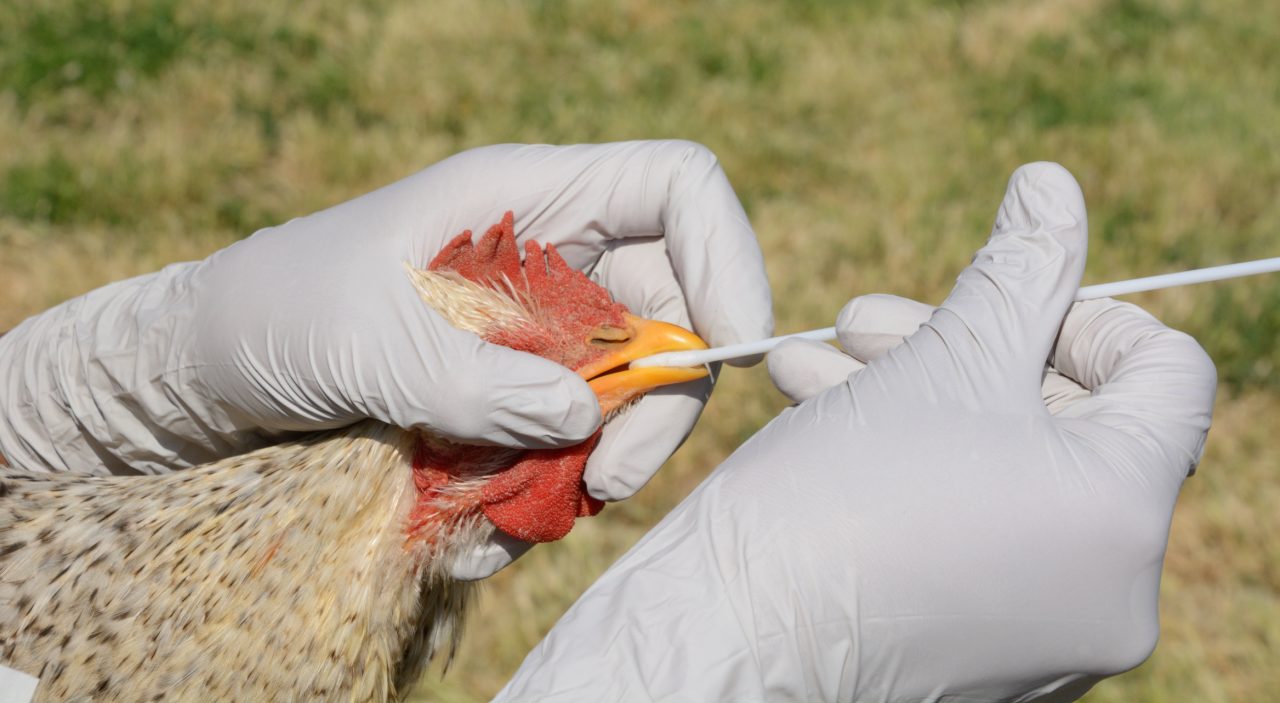Pandemic planning and the Scottish Government’s fears about bird flu have been revealed in newly released cabinet papers from 2006.
Cabinet minutes and briefing papers show that the government, led by then-first minister Jack McConnell, held extensive discussions about how to respond to a pandemic, prompted by fears about avian flu.
Ministers were considering shutting schools to protect children if avian flu became a pandemic, according to the documents that have been made public after 15 years.
Further parallels to the response to the coronavirus crisis include a push for those deemed most at risk – in this case, poultry workers – to be given an annual vaccination against flu.
The cabinet minutes from February state that the UK Joint Committee on Vaccination and Immunisation (JCVI) recommended vaccinations “to minimise the theoretical public health risk of avian flu mixing with seasonal flu and possibly mutating into a pandemic flu strain”.
Public health experts were “closely monitoring developments” of the spread of bird flu at the start of 2006 following an outbreak in Turkey and deaths linked to infections in south-east Asia.
The H5N1 strain of the avian influenza virus is known to have infected 861 humans, with 455 deaths, between 2003 and May last year, according to the World Health Organisation.
With fears growing in the UK about its spread in 2006, the released cabinet documents reveal ministers discussed “well-developed contingency plans” if Scots became infected.
By February of that year, there was alarm at the discovery of H5N1 in a flock of wild ducks in Lyon, France, with environment minister Ross Finnie telling cabinet colleagues it was “extremely concerning”.
He explained that the “random nature of the migratory paths followed by infected birds” increased the risk in Scotland because it was impossible to predict where they would end up.
Further concerns were raised in a cabinet meeting of March 22 “following a report of significant mortality in a free-range poultry flock on Orkney”.
Contingency plans were being reviewed in case of a pandemic influenza, with ministers explicitly examining the potential impact on education after both the UK and Scottish chief medical officers advised that schools and childcare facilities should be closed in the event of a pandemic, although they suggested “any such decision would have a significant impact on businesses and the delivery of vital services”.
The papers state: “Ministers will propose the potential widespread closure of schools and group childcare settings during a pandemic as scientific modelling suggest that this might reduce illness in children by up to 50% and save lives.”
It added: “Few, if any, factors are likely to make it tolerable to knowingly expose children to avoidable, serious risk.”
The discovery of a dead swan infected with the H5N1 strain in Cellardyke, Fife, in March caused Mr Finnie to complain in a meeting about a “considerable overreaction to the incident” by the media.
He said that farmers were seeing a drop in demand for chickens and eggs, pushing down prices and added: “In a low-margin, high-volume business, this had the potential to have a serious economic impact on producers.”
The minutes continued: “It was noted that this had been a useful opportunity to test existing procedures and the lessons that had been learned from this would be drawn on in the future.”
The cabinet suggested there should be a strategy developed for responding to “panic or civil disobedience” provoked by any similar crisis in future.
Later investigations of the bird’s death “confirmed that the swan was a migrating whopper and it was likely that this was a one-off case”, prompting interest to “wane”, according to the weekly review of media coverage.
But by the end of May, the deputy first minister had been alerted by the World Health Organisation of human-to-human transmission of avian flu.
The minutes of the cabinet meeting state: “He wondered whether the executive had the necessary powers and procedures in place to act if such a situation were to arise.”
He added that “exercises to test procedures in Scotland were under continuous development and review”.
However, discussion about avian flu at cabinet appeared to diminish until November when a BBC Horizon programme prompted some questions “about the extent of Scotland’s preparedness”, with the health minister and chief medical officer subsequently hosting a briefing on pandemic flu for Holyrood’s Health Committee and party health spokespeople.
Follow STV News on WhatsApp
Scan the QR code on your mobile device for all the latest news from around the country


 iStock
iStock
























